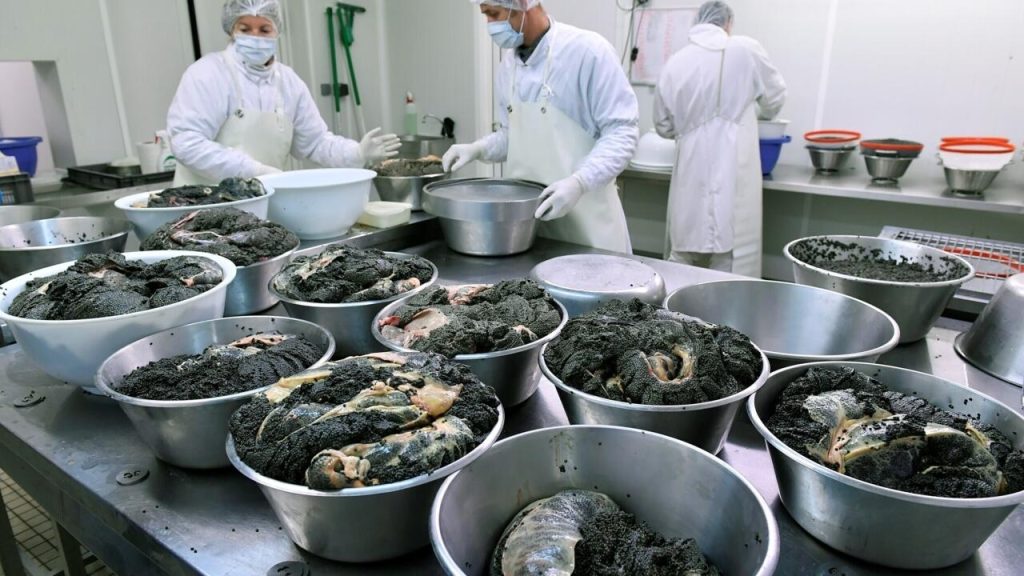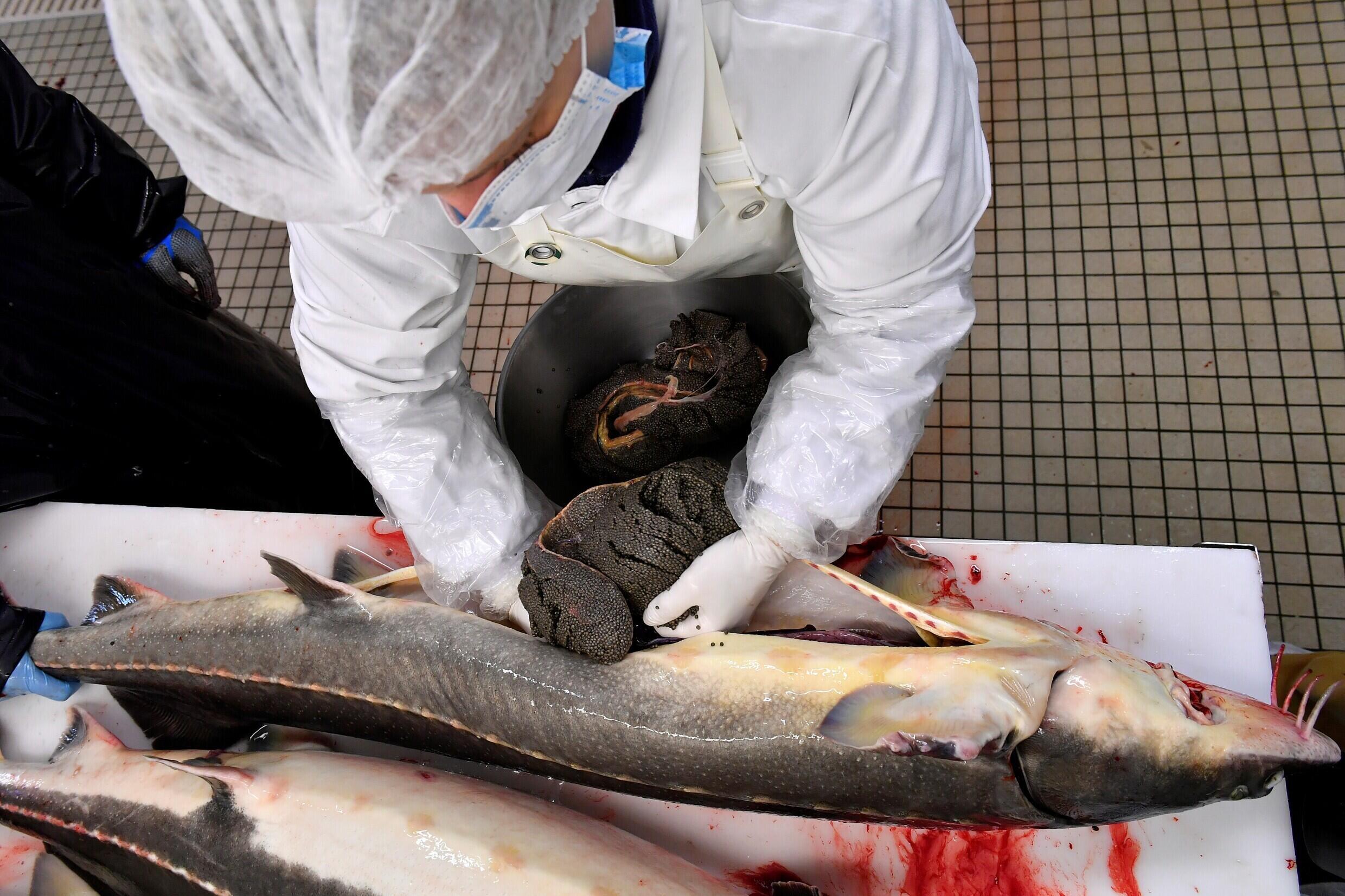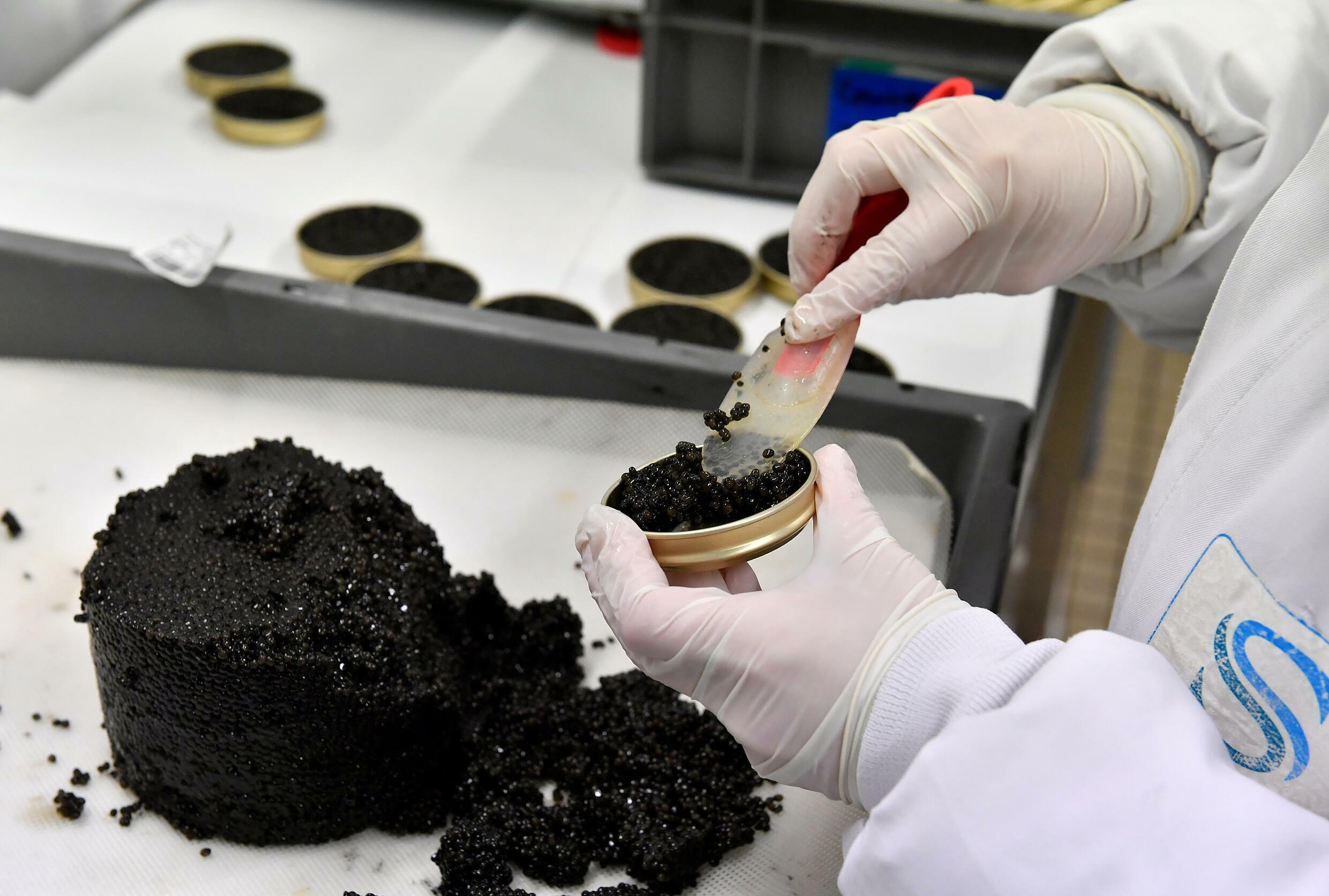
Science and transparency in serving caviar made in France
Posted in:
Saint-Fort-sur-Gironde (France) (AFP) – At an aquaculture farm near Bordeaux, Christophe Baudouin runs an ultrasound machine on the belly of a sturgeon to test its eggs and ensure the quality of the caviar produced in France.
Announce “Caviar!” ‘, as the display shows the correct flash around each round bean, before shouting ‘Very ripe! , indicating that the pregnancy cycle has gone too far and the eggs have become soft, losing the crucial crunch. So the female will return to the water for two years.
For Sturia, the flagship brand of France’s leading caviar producer, Sturgeon, it’s a particularly arduous process: 20,000 fish a year undergo ultrasound examinations of 300 tons of caviar.
Process has become necessary with global warming. Because with warmer waters speeding up the pregnancy cycle, more eggs are often more mature.
“We’ve seen conditions evolve in recent years, the winters are less severe, it’s been ten years since we’ve seen ice on the ponds,” assures Christophe Baudouin.
One in five fish died in 2021 when the water temperature reached 30 degrees, five degrees above sturgeon’s comfort zone.
“You may not know each one by name, but it’s not a good idea to pull a dead fish out of the water—and of course the cost is prohibitive for the kit,” assures Sturia President Laurent Dulau.
Sturgeon fishing In the wild – including the Russian and Iranian waters of the Caspian Sea – sturgeon is now found almost exclusively on farms, mostly in China.
In the Gironde, sturgeon has been caught for centuries, but its eggs have never been particularly valued: in the Middle Ages, they were given to pigs.

It was the Armenian immigrants Melkum and Moushgh Petrosyan, the founders of the brand of the same name, who brought the fashion for caviar to France at the beginning of the 20th century.
They first persuaded César Ritz to put Caspian sturgeon eggs on his list of palaces before opening their shop in Paris.
“less but better”
In France, it only started breeding in the 1990s and has been growing since the ban on wild caviar in 2008.
A risky venture because it can take up to 10 years to raise sturgeons…and discover that the quality of the caviar is just not there. The first caviar tasted like mud, which is softer and better controlled. But it is the Chinese Shrinky caviar with golden grains and a more round and complex taste that is a favorite of French chefs.
Unable to compete with China in terms of quantity, French producers rely on sustainable farming. Thus ultrasound avoids killing sturgeon unnecessarily and does not use antibiotics.

Sturia sends sturgeon meat for use in rillettes, collagen-rich gonads for cosmetics, leather for leather, and a specialty glue popular with luthiers.
The focus on traceability and quality is boosting the caviar’s post-poaching crisis: “The idea is to produce less but better,” says Dollau.
Michel Berthomier, another caviar producer in Aquitaine called Perletta caviar, is frustrated that “nine out of ten French restaurants, maybe ten out of ten” still source their supplies from China. “We sell more in Singapore than restaurants 10 kilometers from here,” he says, though he thinks the transparency of French production will end up winning over buyers.
“Before, there was a mystery about how these fish were raised. Today we are completely transparent about how our fish live, how we feed them, and how we make our choices.”
© 2022 AFP

“Organizer. Social media geek. General communicator. Bacon scholar. Proud pop culture trailblazer.”
